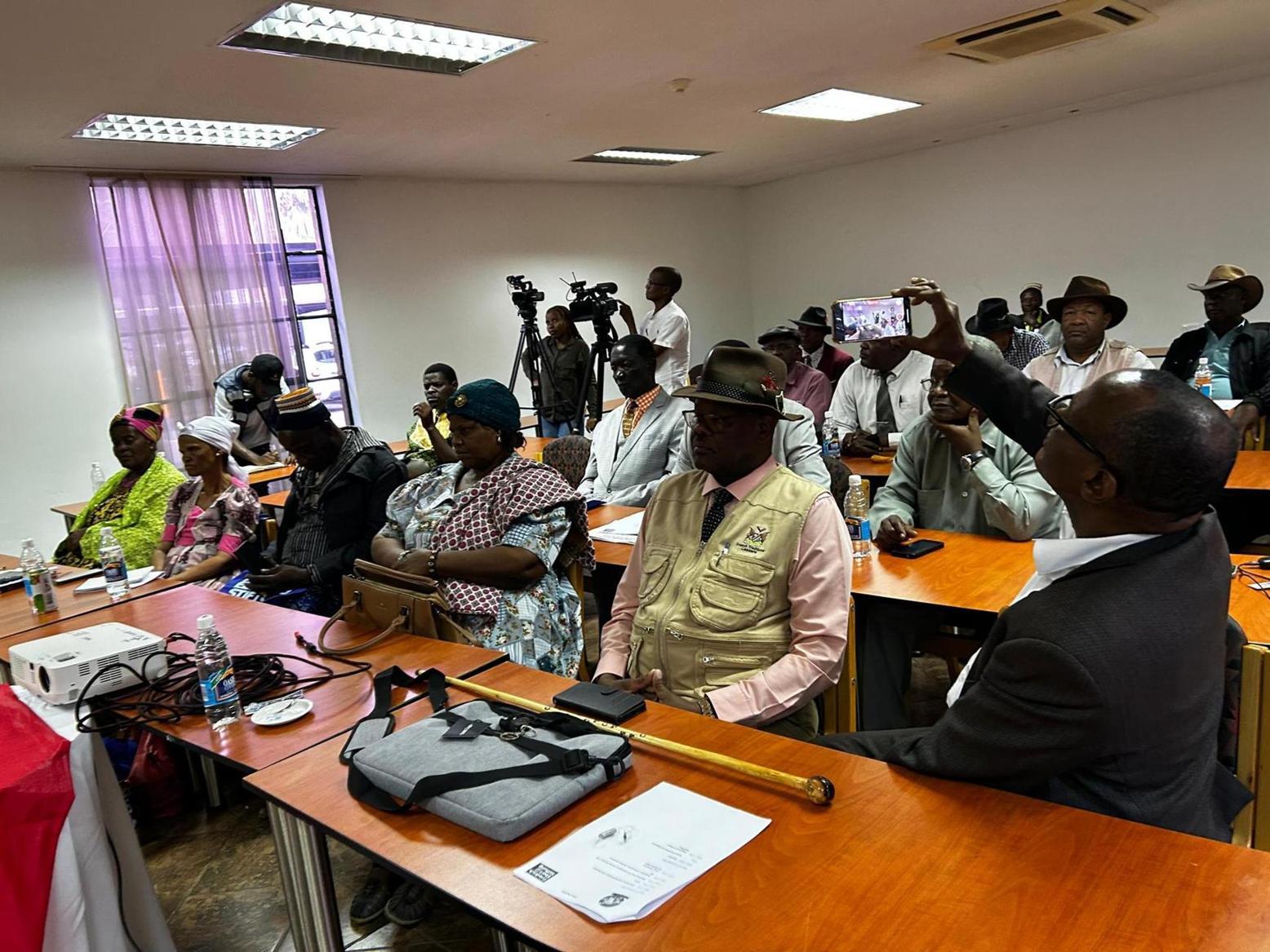Africa-Press – Namibia.
Traditional heads of the 1904/08 genocide affected communities recently convened in the capital to update the nation on the progress of the ongoing negotiations on reparations with the Namibian and German governments.
The gathering took place at Namibia University of Science and Technology Hotel School.
It was aimed at urging the Namibian government to accelerate the negotiation process around genocide reparations with the urgency, seriousness and integrity it demands.
The meeting comprised chiefs of the affected communities and community leaders from the Ovaherero, Nama, San and Damara.
These communities all complained that while “considerable progress has been made in drafting the core texts of the Joint Declaration and various sub-agreements, the negotiation process is slow and seems far from conclusion”.
They said certain complexities, both within the government and among the negotiating parties, have contributed to the slow pace in bringing the matter to closure.
They requested that all outstanding matters impending the finalisation as well as the preparation for the implementation phase for the reparations be completed.
“The intergenerational suffering, unresolved grievances and suspicions of delay risk undermining trust, causing further pain to the descendants of the victims of genocide,” reads a press statement from the chiefs.
The chiefs called upon the government and those involved in the negotiation to fast forward the process as a matter of national priority.
They welcomed the new leadership in the Technical Committee tasked with leading and supporting the negotiations, which has inspired confidence that the process will reach a fair and balanced conclusion.
“While the chiefs are pleased with the leadership changes, they reaffirmed that any final processes must incorporate the principles of integrity, transparency, accountability and sustainability as well as capacity building, memorialisation and cultural restoration, reconciliation, social cohesion and peacebuilding.
“Basically, the principles must be aimed at investing in community development, education, health, livelihoods, infrastructure and preservation of cultural heritage,” they said.
Their expectation is that the sub-agreements in the drafted form will be further refined and finalised as suggested by their representatives.
They added that any revision must respect the wishes and essential expectations of the beneficiary communities.
The chiefs assured the affected communities and descendants that their voices are heard at the highest level.
“We, your chiefs, are committed, vigilant and resolved that your rights, dignity and heritage will be upheld,” they said.
For More News And Analysis About Namibia Follow Africa-Press






